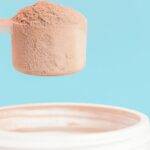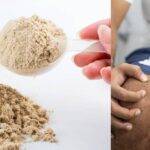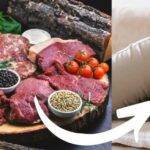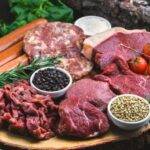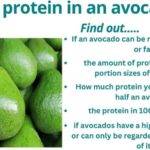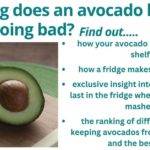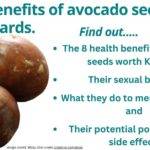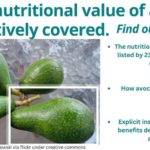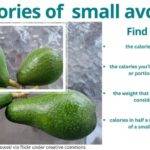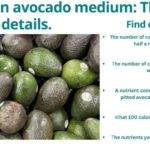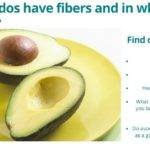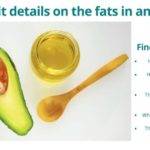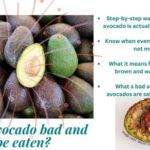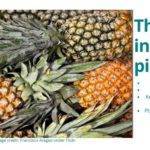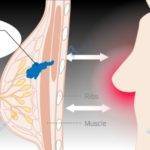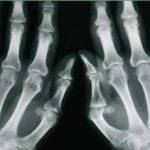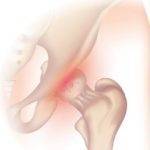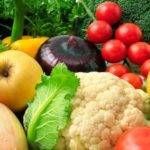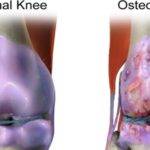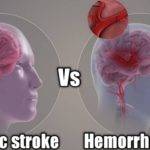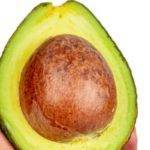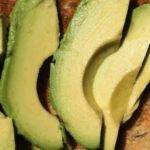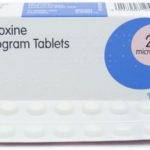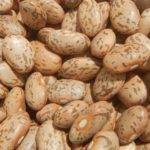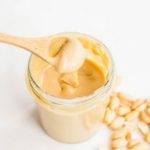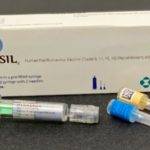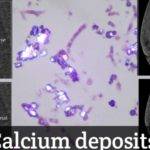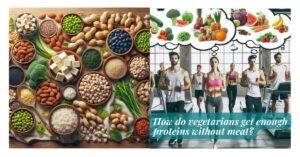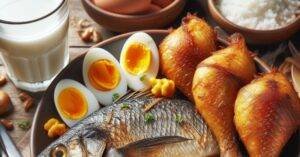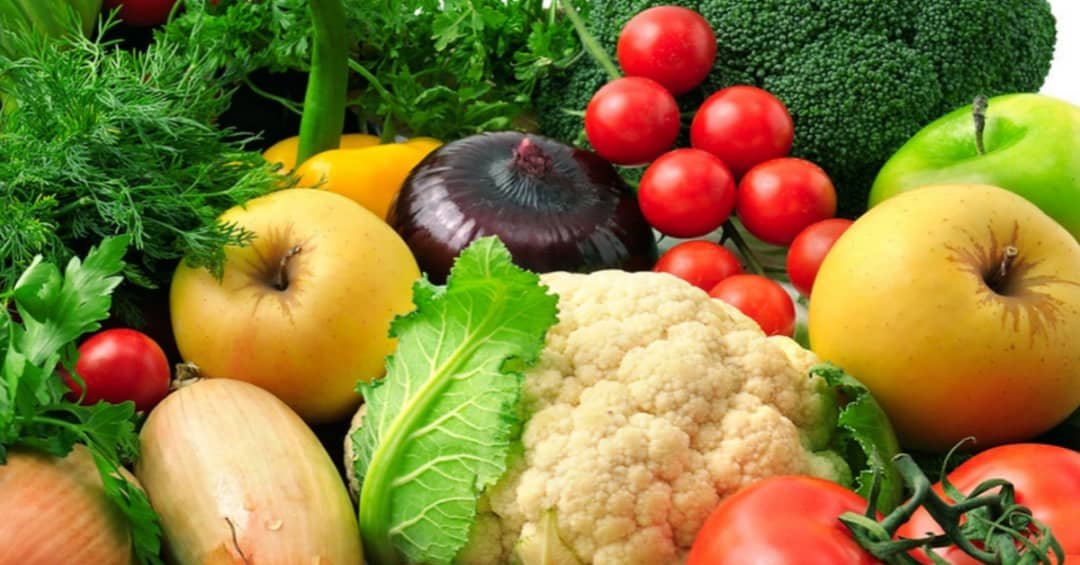
Table of Contents
Arthritis isn’t curable and no food promises a cure. However, certain foods can help relieve you of the symptoms. The most worrying signs revolve around inflammation so foods that help counter inflammation are good for arthritis and should be taken if you are a sufferer.
In this article, we’ll be taking a look at the types of foods, fruits, vitamins, and spices that have anti-inflammatory and antioxidant properties. They protect your joints and help relieve you of the symptoms of arthritis.
What foods are good for inflammation from arthritis?
1. Cruciferous vegetables like broccoli, radish, turnip, cauliflower, and cabbage: Research has shown that consuming these vegetables is inversely associated with your risk of coming down with chronic diseases among which is arthritis1. Studies suggest vegetables are more beneficial when taken fresh or as a raw extract2.
These health benefits are believed to be partly due to the anti-inflammatory action of sulforaphane that they contain.
2. Green leafy vegetables like spinach, arugula, kale, and collard greens: These vegetables are known to have anti-inflammatory activities and a study has attributed this to the occurrence of bioactive compounds in them.3 Some of these compounds are:
- polyphenols,
- flavonoids, and
- carotenoids.
3. Vegetable bulbs like garlic and onions: Bulbs like these have been proven by research to have known antioxidant and anti-inflammatory properties.4 They contain organosulphur compounds which prevent the oxidation of fatty acids, by this, they prevent pro-inflammatory compounds.
4. Fatty or oily fish like sardines, salmon, and mackerel: Research has shown fatty fish when consumed for 8 weeks, decrease plasma lipids which mediate inflammation.5 Dietary fish oil is rich in n-3 PUFA eicosapentaenoic acid (EPA) which suppresses the making of pro-inflammatory cytokines by the macrophages in the body. By this, they are effective anti-inflammatories and help to reduce the symptoms of arthritis.6
5. Fruits like oranges, grapes, apples, tomatoes, strawberries, cherries, pomegranates, and avocados: These contain flavonoids which are biologically active polyphenolic compounds known for their immunomodulatory and anti-inflammatory properties according to a study.7 The recommended dietary guideline is 5 or more servings of fruits daily as published in the Journal of American Dietetic Association.8
6. Herbal roots like turmeric or ginger: A study on turmeric and ginger has shown these spices to have anti-inflammatory roles and can be used to manage inflammatory conditions like arthritis.9
7. Nuts like walnuts, almonds, cashew nuts, pine nuts, brazil nuts, and peanuts: Nuts contain numerous beneficial nutrients and chemicals. There is evidence nuts protect against inflammation due to certain components like monounsaturated fatty acids (MUFA), magnesium, fiber, and antioxidants.10
8. Dairy and dairy products like milk and yogurt: They are rich in bioactive food nutrients, milk fat, proteins, vitamin D, plus other minerals which research has shown to have the potential to reduce the risk of inflammation11. Another study has shown the intake of dairy foods significantly reduces oxidative and inflammatory stress even in the presence of obesity as contained in the American Journal of Clinical Nutrition.
9. Dark chocolate: A study has shown dark chocolates when eaten with therapeutic lifestyle changes, lower the levels of markers of inflammation in your body12. In another study, flavanol-rich dark chocolate was shown to produce an anti-inflammatory effect by causing an increase in messenger ribonucleic acid(mRNA) and also by reducing the intracellular inflammatory stress response13.
10. Extra virgin olive oil(EVOO): Phenolic compounds derived from EVOO are beneficial against oxidative stress and also exert anti-inflammatory processes that alleviate chronic degenerative diseases like osteoarthritis.14
What foods help relieve arthritis pain?
Pain is a component of inflammation that is often associated with swelling in arthritic patients. Ideally, foods that will help relieve arthritic pains are those with anti-inflammatory, analgesic, and antioxidant properties like the ones already listed above in their various food categories. These include:
- Spinach,
- Avocados,
- Milk,
- Cashew nuts,
- Almonds,
- Turmeric,
- Cabbage,
- Ginger,
- Yogurts,
- Sardines,
- Tomatoes,
- Salmons,
- Dark chocolates,
- Extra virgin olive oil, etc
Kindly keep in touch by signing up for our newsletter:
Best foods for rheumatoid arthritis.
Rheumatoid arthritis is an auto-immune disease accompanied by systemic or body-wide inflammation which also affects the organs. While it’s incurable, effective drugs used in managing the disease usually involve immune system suppressants. Ideally, you would expect foods that will help in managing rheumatoid arthritis to be those that can also suppress the immune system.
Unfortunately, most foods that can suppress your body’s immunity prove to be counterproductive in the management of rheumatoid arthritis because they also encourage inflammation. Since inflammation is the pain point that makes the disease so gruesome for most people, the best foods for rheumatoid arthritis are the ones that fight inflammation.
Such foods include cruciferous vegetables, green leafy vegetables, fatty fish, nuts, dairy, fruits, dark chocolates, and extra virgin olive oil (EVOO) just as has been discussed earlier in this article.
What vitamins are good for rheumatoid arthritis?
Essential vitamins for rheumatoid arthritis are those with special roles in the management of the disease and those whose levels are compromised by the drugs used in treating the disease. Low levels of these vitamins could lead to undesirable consequences. You may be required to take supplements that are rich in such vitamins where dietary and other natural sources are insufficient.
Three of the most important of these vitamins are Vitamin D, E and B9 otherwise called folic acid.
Vitamin D.
Vitamin D is necessary for strong and healthy bones without which your bones will be at risk of developing deformities. Deformities are clinical features of advanced cases of rheumatoid arthritis. Vitamin D is also known to help reduce inflammation which doubles its importance in the management of rheumatoid arthritis.
Glucocorticoids are common drugs used in the treatment of arthritis of auto-immune origin like rheumatoid following recommended guidelines, increasing the risk of vitamin D deficiency. This makes it imperative that sufferers of rheumatoid arthritis take enough vitamin D to be safe from the complications that follow its deficiency.
Sources of this vitamin include beef liver, salmon fish, mushrooms, and Ultraviolet rays which enable your body to produce the vitamin when your skin is exposed to sunlight. At times vitamin D supplements may be recommended as a non-natural source to help beef up the bioavailability in your body.
Vitamin E.
It has a great antioxidant effect which is crucial in tackling arthritis as it helps with swelling and joint stiffness. A deficiency of this vitamin has been observed in rheumatoid arthritis patients.
Apart from vitamin E supplements, other sources of it include salmon fish, nuts, and dark green vegetables like spinach.
Folic acid.
Folic acid or vitamin B9 is essential in the formation of RNA and DNA in your body and also works with vitamin B12 in the production and maturation of your body’s red blood cells. Deficiency of it results in symptoms of anemia.
One of the essential drugs, Methotrexate, used in the treatment of rheumatoid arthritis impacts negatively the body’s absorption of folic acid. This makes the vitamin important for sufferers of rheumatoid arthritis.
What foods are good for knee arthritis?
Several types of arthritis could affect your knees like osteoarthritis for instance. Whichever type we consider, the common symptom is inflammation. Of the components of inflammation, pain, and joint swelling are the most distressing among people with arthritis.
Therefore, foods that help reduce inflammation help in no small way in bringing you relief from these symptoms. These are just as detailed earlier in this article.
Best fruits for arthritis.
Results obtained from studies have proven the potency of whole fruits and the extracts of specific fruits to be effective in the management of arthritis. Available research data suggests blueberries, strawberries, and pomegranates give some level of protection against arthritis15.
According to studies, the consumption of whole fruits like grapes, avocados, oranges, apples, tomatoes, berries, and their bioactive compounds play significant roles in the prevention and management of arthritis.
I hope this article was informative. You may also want to see the bad foods for arthritis. Endeavor to eat well, exercise, and stay awesomely healthy.
- Ruhee, R. T., & Suzuki, K. (2020). The Integrative Role of Sulforaphane in Preventing Inflammation, Oxidative Stress and Fatigue: A Review of a Potential Protective Phytochemical. Antioxidants, 9(6), 521. https://doi.org/10.3390/antiox9060521 ↩︎
- Soundararajan, P., & Kim, J. S. (2018). Anti-Carcinogenic Glucosinolates in Cruciferous Vegetables and Their Antagonistic Effects on Prevention of Cancers. Molecules, 23(11), 2983. https://doi.org/10.3390/molecules23112983 ↩︎
- Gunathilake, K. D., Ranaweera, K. K., & Rupasinghe, H. P. (2018). In Vitro Anti-Inflammatory Properties of Selected Green Leafy Vegetables. Biomedicines, 6(4), 107. https://doi.org/10.3390/biomedicines6040107 ↩︎
- Wilson, E.A. and Demmig‐Adams, B. (2007), “Antioxidant, anti‐inflammatory, and antimicrobial properties of garlic and onions”, Nutrition & Food Science, Vol. 37 No. 3, pp. 178-183. https://doi.org/10.1108/00346650710749071 ↩︎
- Lankinen, M., Schwab, U., Erkkilä, A., Seppänen-Laakso, T., Hannila, L., Mussalo, H., Lehto, S., Uusitupa, M., Gylling, H., & Orešič, M. (2009). Fatty Fish Intake Decreases Lipids Related to Inflammation and Insulin Signaling—A Lipidomics Approach. PLOS ONE, 4(4), e5258. https://doi.org/10.1371/journal.pone.0005258 ↩︎
- Calder, P. C. (2001). Polyunsaturated fatty acids, inflammation, and immunity. Lipids, 36(9), 1007-1024. https://doi.org/10.1007/s11745-001-0812-7 ↩︎
- González-Gallego J, García-Mediavilla MV, Sánchez-Campos S, Tuñón MJ. Fruit polyphenols, immunity, and inflammation. British Journal of Nutrition. 2010;104(S3):S15-S27. doi:10.1017/S0007114510003910 ↩︎
- Holt, E. M., Steffen, L. M., Moran, A., Basu, S., Steinberger, J., Ross, J. A., Hong, C., & Sinaiko, A. R. (2009). Fruit and Vegetable Consumption and Its Relation to Markers of Inflammation and Oxidative Stress in Adolescents. Journal of the American Dietetic Association, 109(3), 414-421. https://doi.org/10.1016/j.jada.2008.11.036 ↩︎
- Azeez, T. B., & Lunghar, J. (2020). Antiinflammatory effects of turmeric (Curcuma longa) and ginger (Zingiber officinale). Inflammation and Natural Products, 83-102. https://doi.org/10.1016/B978-0-12-819218-4.00011-0 ↩︎
- Casas-Agustench, P., Bullo, M., & Salas-Salvado, J. (2010). Nuts, Inflammation and Insulin Resistance. Asia Pacific Journal of Clinical Nutrition, 19(1), 124–130. https://search.informit.org/doi/10.3316/ielapa.971175762287136 ↩︎
- Da Silva, M. S., & Rudkowska, I. (2015). Dairy nutrients and their effect on inflammatory profile in molecular studies. Molecular Nutrition & Food Research, 59(7), 1249-1263. https://doi.org/10.1002/mnfr.201400569 ↩︎
- Jafarirad, S., Ayoobi, N., Karandish, M., Jalali, T., Haghighizadeh, M. H., & Jahanshahi, A. (2018). Dark Chocolate Effect on Serum Adiponectin, Biochemical and Inflammatory Parameters in Diabetic Patients: A Randomized Clinical Trial. International Journal of Preventive Medicine, 9. https://doi.org/10.4103/ijpvm.IJPVM_339_17 ↩︎
- Kuebler, U., Arpagaus, A., Meister, R. E., Von Känel, R., Huber, S., Ehlert, U., & Wirtz, P. H. (2016). Dark chocolate attenuates intracellular pro-inflammatory reactivity to acute psychosocial stress in men: A randomized controlled trial. Brain, Behavior, and Immunity, 57, 200-208. https://doi.org/10.1016/j.bbi.2016.04.006 ↩︎
- Cicerale, S., Lucas, L., & Keast, R. (2012). Antimicrobial, antioxidant, and anti-inflammatory phenolic activities in extra virgin olive oil. Current Opinion in Biotechnology, 23(2), 129-135. https://doi.org/10.1016/j.copbio.2011.09.006 ↩︎
- Basu, A., Schell, J., & Scofield, R. H. (2017). Dietary fruits and arthritis. Food & Function, 9(1), 70. https://doi.org/10.1039/c7fo01435j ↩︎






